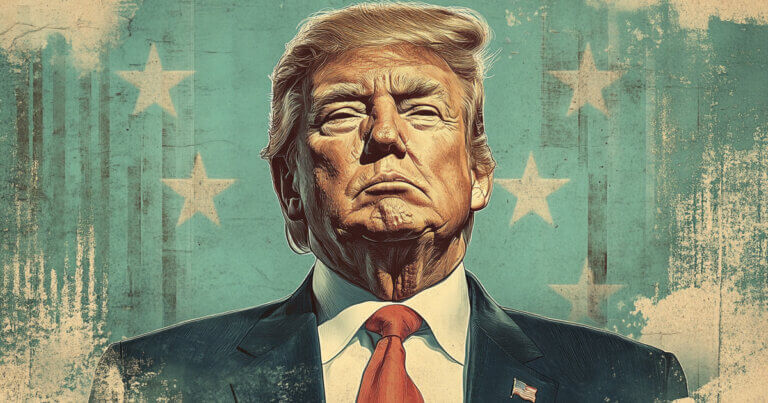 Trump taps crypto advocate Howard Lutnick as commerce secretary
Trump taps crypto advocate Howard Lutnick as commerce secretary Trump taps crypto advocate Howard Lutnick as commerce secretary
Tariff advocate and crypto supporter Lutnick takes on Commerce responsibilities, stirring market analysts.

Cover art/illustration via CryptoSlate. Image includes combined content which may include AI-generated content.
President-elect Donald Trump announced Howard Lutnick, CEO of financial services firm Cantor Fitzgerald, as his nominee for Secretary of Commerce on Nov. 19.
The decision positions Lutnick, a vocal proponent of protectionist trade measures and cryptocurrencies, at the helm of US economic policy, focused on tariffs and trade reform.
Trump said in a statement:
“Howard will lead our Tariff and Trade agenda, with additional oversight of the Office of the United States Trade Representative.”
Surprise nomination
Lutnick has been a prominent figure in Trump’s transition team, co-chairing the process and advising on Cabinet selections. His nomination for Commerce Secretary follows months of speculation, with Lutnick reportedly shifting his focus to this role after initially seeking the Treasury Secretary position.
The decision surprised some, as Linda McMahon, former head of the Small Business Administration, was considered the leading candidate. She co-chaired the transition team alongside Lutnick, focusing on policy initiatives. Robert Lighthizer, who served as US Trade Representative during Trump’s first term, was also in contention.
In his new role, Lutnick will oversee critical bureaus such as the Census Bureau, the National Oceanic and Atmospheric Administration (NOAA), and the Patent and Trademark Office.
The Commerce Department’s responsibilities include negotiating international trade deals, promoting foreign investment, and supporting domestic businesses.
Tariffs on the agenda
Lutnick’s appointment is expected to align with Trump’s broader economic agenda, which includes sweeping tariff proposals and potential restructuring of federal agencies like NOAA.
Lutnick has been a strong advocate for tariffs, describing them as key to US economic success in earlier eras. Speaking at a campaign rally, he noted that tariffs once funded the government and spurred unprecedented industrial growth.
Trump has proposed imposing 60% tariffs on goods from China and 10% on imports from other countries, measures aimed at reducing trade deficits and bolstering domestic manufacturing.
If confirmed, Lutnick will be tasked with executing Trump’s ambitious trade policies and reshaping US economic relations abroad, a role likely to influence both domestic industries and global markets.




 CoinGlass
CoinGlass 


 CryptoQuant
CryptoQuant 















































































